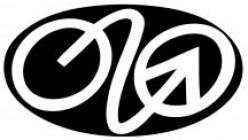Bicycles are a viable urban transportation option, and far more fun, economical, and ecological than cars at moving people to where they need to be. Right to Move (RTM) is a non-profit bike shop started in the spring of 1997 by a group of people who believed cycling should be accessible to all, regardless of gender, age, wealth, or ethnicity.
We the people of Right to Move:
- make up the Right to Move non-profit volunteer organization
- are a large, diverse, and dedicated group of people
- champion that bicycles are a cheap mode of transportation that do not congest cities or produce greenhouse gases or other pollutants as cars do
- are dedicated to facilitating safe, reliable access to transportation by bicycle for everyone
- recognize that women, trans people, and gender-nonconforming people have less access to spaces where mechanical know-how is built up, and work to right this imbalance
- recognize that our shop, the physical infrastructure that enables it to operate, and the terrain (urban or otherwise) that we set out to promote cycling on are located on unceded Indigenous lands; and in observance of this fact, are resolved to act in solidarity with Indigenous peoples and interests
- maintain a space allocated by Concordia University for a bike shop
- provide bicycle maintenance workshops and drop-in repair help in our shop
- accept donated bicycles and repair them so they can be used and enjoyed again (thereby reducing the demand for more bicycles to be built under socially-exploitative and environmentally-disastrous conditions)
- further the causes of DIY bike maintenance and urban cycling by educating the public
WTF Days
At Right to Move, we try our best to facilitate an inclusive and empowering environment that is friendly and safe for all community members. However, we realize that sexism and gender discrimination are strong forces that effect people in their everyday lives and can also be present during general shop hours at Right to Move. For that reason, on Wednesdays, the shop is set aside to welcome all people who are trans, femme, women, or non-binary, and others who feel that male dominated spaces aren’t for them. See this post on the old WTF blog for an explainer of why we think this is important. The blog is also a sweet archive of the activities of WTF (formerly GNi), and these days, you can keep up with WTF on Instagram!
Bikes for free or cheap
- We sell bikes at low cost at the shop during our open hours (or by appointment if a buyer can’t make it while we are open).
- A significant part of our revenue as a non-profit comes from selling bikes, but we also try to designate a portion of bikes that we have in stock for donation to community groups.
- The bikes we sell are donated to us so that they can be passed on to people who otherwise would not be able to afford to buy a bike and who could benefit from one.
- We will explain our mandate and mission and sell a bicycle to anyone who presents themselves at our shop.
- We encourage people to understand as much about their bike as possible so that they will get the maximum use and benefit out of it.
- In general, prices start at about $25 for a bike which needs significant maintenance or repairs, and go up to about $125 for bikes of reasonable quality that are ready to ride. The prices are decided on by volunteers and suggested to the buyers.
- Prices, however, are flexible, and people who cannot afford, but really want, a specific bike (or the only available bike) should be accommodated to a reasonable extent. Also, buyers can be invited to choose a bicycle which they will pay for and then repair for themselves.
- The first concern in establishing a price should be that the buyer is able to afford the bike, and the second concern should be the value of the bicycle and the need for the shop not to undercut itself. We are a non-profit organization, and we are able to maintain our services to the community partly through the sale of bicycles. It is for this reason that we ask people to pay as much as they can afford for a bicycle.
